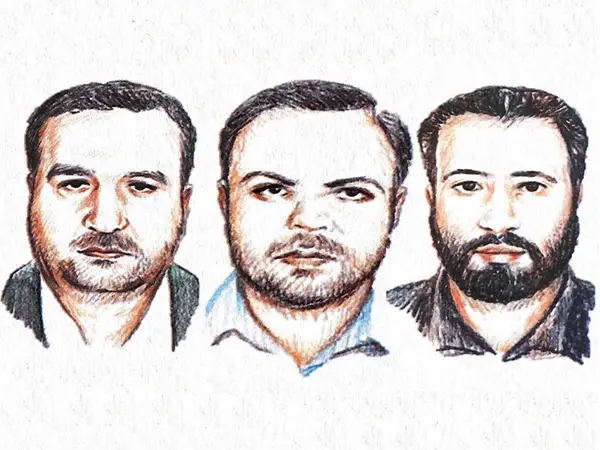Iran International has obtained information about the specific targets of the latest Israeli air strike on Tehran-linked targets in Syria.
Israel carried out airstrikes on Syria's Damascus International airport and other positions south of the capital on late Friday and early Saturday, September 16 and 17, targeting what is called 'Unit 2250' -- a special Iranian logistics institution run by Tehran’s Revolutionary Guard.
Established as a subset of Unit 2000, the outfit is headquartered in Damascus with many offices across Syria such as the suburbs of the capital as well as Latakia, Hama, Aleppo and Deir ez-Zor.
The unit is in charge of receiving incoming equipment, weapons and personnel from Iran as well as supporting the Iran-backed Lebanese forces in the country. It is also tasked with escorting and hosting senior Iranian officials and their families upon arrival in Syria, which are usually carried out in coordination with senior Syrian authorities.
In the recent attack the warehouses, parking lots and even the main office were targeted by Israeli strikes. “The aggression led to the death of five soldiers and some material damage,” Syria’s official news agency SANA quoted a military source as saying.
According to exclusive information received by Iran International, the unit is under the direction of someone identified only as ‘Seyyed Reza’ while two other employees of the office are identified as Abdollah Ebadi and Meysam Katbi.
Seyyed Reza is the head of the office in the Damascus branch and has for many years been an a key Iranian asset for its activities in the region. He had earlier worked as the representative of the unit in Tehran for several years.
Abdallah Ebadi is one of the senior members of the unit who is in charge of transferring weapons through passenger flights, mainly through delivery of hand luggage from Iran to Syria.
Meysam Katabi is responsible for the transfer of personnel as well as weapons between Iran and Syria. He used to serve in a similar post in the 190th unit of the Quds (Qods) Force, the extra-territorial arm of Iran’s Revolutionary Guard.
Israel has intensified strikes on Syrian airports to disrupt Iran's increasing use of aerial supply lines to deliver arms to allies in Syria and Lebanon including Hezbollah, regional diplomatic and intelligence sources told Reuters.
Tehran has adopted air transport as a more reliable means of ferrying military equipment to its forces and allied fighters in Syria, following disruptions to ground transfers.
A senior Israel Defense Forces officer said on Thursday that Hezbollah and other Iran-backed militia groups are withdrawing from areas in Syria that have been targeted by Israel. The apparent withdrawal of these forces from some regions is “a result of the IDF strikes” in recent weeks. He did not say which parts of Syria he was referring to.
Israel has been targeting Iranian weapons supplies since 2017 to prevent Tehran from expanding its foothold in Syria and transferring more weapons to its proxy forces.
